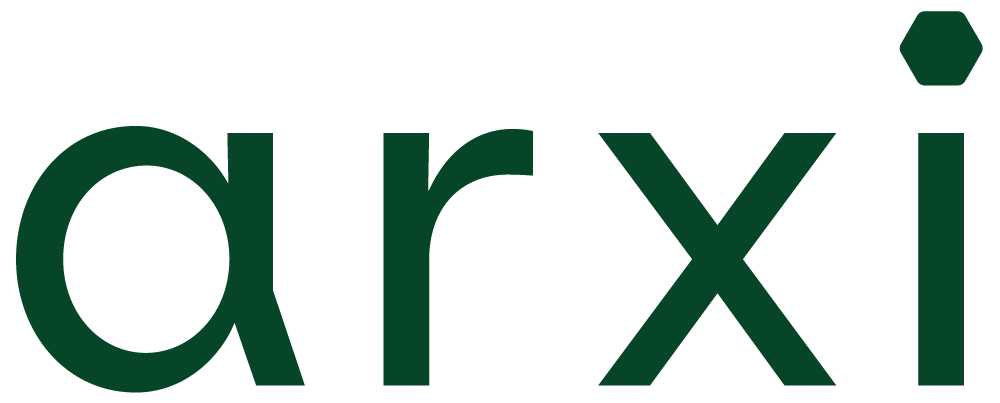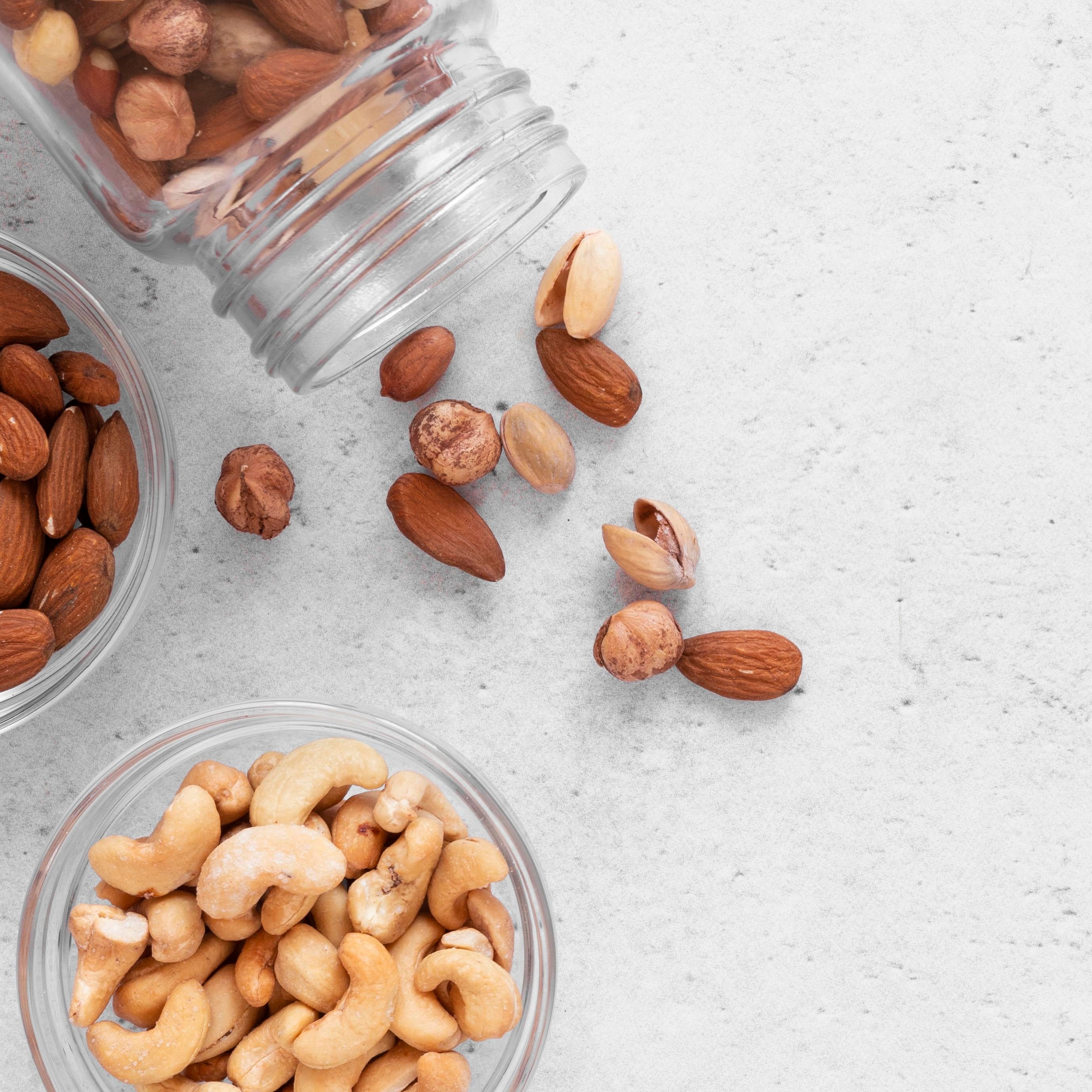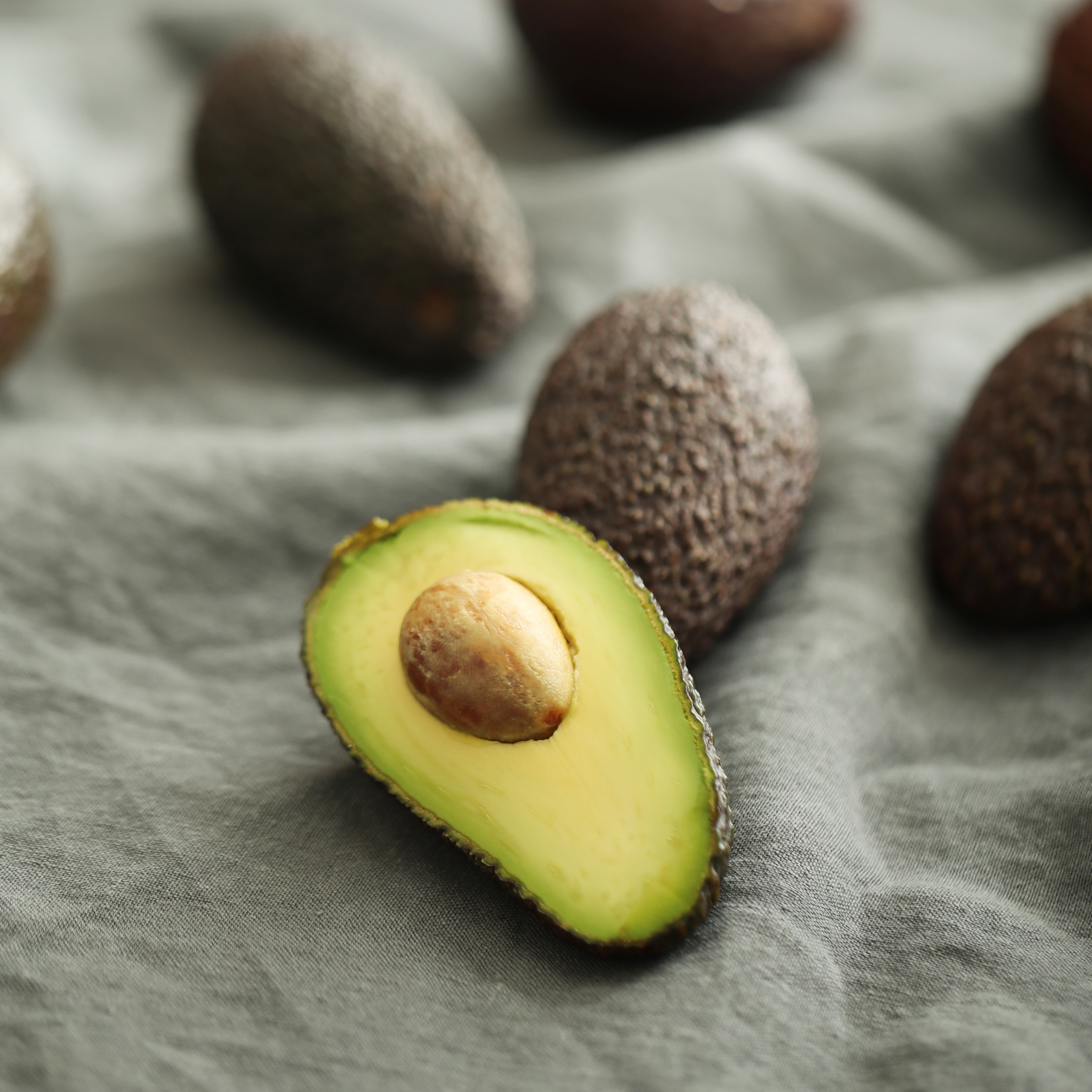NAD+ and Nicotinamide Riboside Chloride for Female Fertility and IVF: A Time Machine For Your Ovaries?
We all know that age is one of the biggest contributors to fertility delays and the increased reliance on fertility treatments. It feels inescapable at times, it’s a constant reminder and pressure from society that your biological clock is ticking, and it only gets louder with time.
Despite all the advancements in science, we're yet to stumble upon a time machine for your gametes—your eggs—to reverse their age and bring back their prime quality for conception.

While we can’t stop the biological clock (sorry!), we can influence how well we care for our bodies—and that includes the health of the eggs and sperm inside them.
Enter the promising world of NAD+ and its precursor, Nicotinamide Riboside Chloride (NRC), which might just be the closest thing we have to a time-travelling solution for age-related fertility concerns.
What is NAD+ and Nicotinamide Riboside Chloride?
So, what exactly is NAD+? And, should you be considering a supplement like Nicotinamide Riboside Chloride, the precursor to NAD+, to increase your levels?
NAD+ (nicotinamide adenine dinucleotide) is a co-enzyme essential for many reactions in the body, including energy production, DNA repair, and immune cell function. NAD+ is found in every single cell inside your body!
As we age, our NAD+ levels drop, and this decline is linked to various aging processes (Covarrubias et al., 2021; Liang et al., 2023). It’s like our internal energy cells are running out of fuel, which can contribute to diminished fertility because our eggs need a lot of energy to develop and function optimally.
Nicotinamide Riboside Chloride (NRC) is an efficient precursor that helps the body produce NAD+ - in other words it’s a “building block” you can take as a supplement so that your body can increase NAD+ levels. Due to the chemical nature of NAD+ it isn’t effective to supplement it directly, and so you need to take a precursor like NRC.
Now, the very cool part is that recent research shows it might rejuvenate egg quality—potentially reversing some of the effects of age on fertility. NRC is available to take orally, and compared to other precursor supplement options like Nicotinamide Mononucleotide (NMS) appears to be more efficient at entering our body’s cells (without getting too scienc-y on you, this is due to the size of the molecules and how easily they cross the outer membrane of a cell).
So ultimately, the very best option for increasing NAD+ is NRC, which you’ll find in OvaGold.
Think of NRC as the spark that jump starts your body’s cellular engine - without it, your fertility might not quite reach its top speed!
What Does NAD+ Do For Egg Health & Fertility?
Inside every cell in your body are tiny powerhouses known as mitochondria. This is where NAD+ plays a critical role. It's not only about energy—NAD+ also influences how well your cells (including eggs and sperm) age (Covarrubias et al., 2021; Liang et al., 2023). The mitochondria has become the primary target in the latest science on ovarian ageing, and therapies targeting mitochondrial function and its DNA may be the next fertility frontier (Podolak, Woclawek-Potocka, Lukaszuk, 2022).
For fertility, NAD+ is particularly important because it correlates to egg quality (Bertoldo et al., 2020). Higher NAD+ levels are thought to be linked to healthier eggs, and healthier eggs mean higher chances of conception.
Beyond boosting energy levels and supporting the mitochondria, NAD+ helps to maintain a healthy redox balance to support DNA repair and provides a defence against oxidative stress, much like an antioxidant (Xie et al., 2020).
NAD+ also is involved in epigenetic expression (Liang et al., 2023). Epigenetics refers to the ability to modify the way the DNA code is being expressed through environment changes such as diet and lifestyle exposures, amongst many others. It means that some genes will be expressed and others won’t be without a change in the underlying DNA. A bit like a light switch, the light is always there, but we can control when it is switched on or off. Reproductive events, especially conception, is a critical window to modify epigenetic expression positively.
Research has highlighted the role of NAD+ in epigenetics due to the involvement of enzymes which NAD+ is involved in such as sirtuins and poly (ADP-ribose) polymerases (PARPs) (Xie et al., 2020).
Ok, ok, we know this is getting really science-y here, if you’re still sticking with us, well done, the practical things you want to know about like safety of NRC and dosing and when to take it is ahead!

Figure from Liang et al., 2023: Therapeutic potential of NAD + in ovarian aging. Previous studies conducted in multiple model animals and humans have revealed the feasibility of increasing NAD + levels by supplying NAD + precursors, and the NAD + metabolomic pathway can enhance mitochondrial function, enhance autophagy levels, and maintain protein homeostasis in mitochondria and lysosomes, consequently decelerating the progression of ovarian aging.
Can NAD+ and Nicotinamide Riboside Chloride Improve IVF Outcomes?
If you’re undergoing IVF, then you may already know how relevant egg quality and your age is to the chance of success.
This makes NRC and boosting NAD+ levels a prime candidate to consider when looking at supporting IVF outcomes, but what does science have to say about it?
Well, because so much of the science NAD+ precursors like NRC has emerged since 2020, we suspect that most of the studies undertaken on individuals undergoing IVF are still likely to be underway.
From the animal studies available on fertility treatments like IVF and NAD+ levels, we know that introducing NAD+ precursors seemed to improve egg quality and early embryo development, with enhanced fertilisation rates of older eggs, which could translate to higher IVF success rates (Li et al., 2024). This has been supported by more studies looking specifically at NRC which also showed enhanced early embryonic development by supporting mitochondrial health, maintaining the DNA and chromosome structures and reducing oxidative stress which could negatively impact the environment the egg and embryo are living in (Li et al., 2024).
In another study published in 2022, researchers observed a positive correlation between NAD+ levels (in the form of a different precursor, NAM) and improved egg maturation and fertilisation rates in women undergoing IVF (Guo et al., 2022). This wasn’t a supplemental study though this was just the natural variation that can occur between individuals in their follicular fluid (the fluid surrounding the egg) throughout the IVF process. We can only speculate what the results might have been if they were given a NAD+ precursor like NRC!
Imagine being able to "time travel" your eggs back to a younger, more fertile state! You can see why we have coined NRC our time machine here at arxi and made sure to include a therapeutic dose of NRC inside OvaGold.
Though more research is needed, the evidence suggests that NAD+ could become an important tool in the fertility toolbox.
Who Should Consider Supplementing NAD+?
If you’re in your mid-30s or beyond, or if you’ve been told your egg quality is low, NRC supplementation to boost NAD+ levels might be worth considering.
Or perhaps, you’re proactive and want to give your eggs the very best chance they have as you invest in growing your future family or preserving your eggs for later.
Researchers note that people who may particularly benefit from NAD+ supplementation include people with PCOS, due to its impact on inflammation associated with the syndrome. There has been some implications by researchers on improving NAD+ status and ovulation rates (Bertoldo et al., 2020; Liang et al., 2023; Li et al.,2024)
Can You Boost NAD+ Naturally From Your Diet or Lifestyle?
You can naturally increase NAD+ levels to support healthy energy production in the cell isn’t just achieved through supplementation, there are lifestyle strategies you can incorporate too!
Here are some natural ways to boost your NAD+ levels without having to hop in a time-travelling car:
-
Exercise: Regular physical activity can help increase NAD+ production (Goodman et al., 2020).
-
Sleep: Maintaining a consistent sleep schedule supports your circadian rhythm (sleep-wake cycle), which is connected to NAD+ levels (Liang et al., 2023; Bushana et al., 2023).
-
Healthy Diet: Focus on a nutrient-rich diet with the right amount of healthy fats, protein and carbohydrates, alongside foods rich in vitamin B3 can help support healthy NAD+ levels (Liang et al., 2023; Poljsak, Kovac and Milisav, 2020).
There may be some specific foods you can focus on incorporating to support NAD+ levels (Poljsak, Kovac and Milisav, 2020):
- Broccoli
- Cucumber
- Cabbage
- Edamame beans
- Beetroot
- Avocado
- Tomato

Foods high in vitamin B3 (nicotinamide aka NAM) include:
- Chicken
- Turkey
- Salmon
- Tuna
- Pork
- Beef
- Tomato passata or tinned tomatoes
- Brown rice
- Peanuts
- Fortified breakfast cereals
- Potato
- Sunflower seeds
- Wholemeal bread
- Pumpkin seeds
What is the Best Form of Supplementation to Increase NAD+ Levels?
There are a few methods to increase NAD+, we can do so naturally through diet and lifestyle (as mentioned above), and through supplementation. There are a variety of three-letter-acronyms (ironically, TLAs for short) that are relevant when selecting a supplemental form to increase NAD+ levels.
|
Form |
Delivery Mode |
Pros |
Cons |
|
Niacin (Vitamin B3) |
Available supplements as niacin (traditional B3 supplements) |
Water soluble so unlikely to reach toxic levels
Well-known and historical use of niacin
Cheap and readily available |
High level or ongoing supplementation can cause niacin flushing (above 50 mg per day)
|
|
NMN (Nicotinamide Mononucleotide) |
Precursor to NAD+ |
NMN can effectively increase NAD+ tissues in the tissues and crosses the blood-brain-barrier to increase NAD+ levels in the brain (Liang et al., 2023)
|
When NMN is taken as a supplement, blood levels of NAD+ drop within about 15 mins after supplementing
Limited data available on fertility and NMN
Expensive |
|
NAM (Nicotinamide) |
Available through dietary sources and commonly available in skincare |
Common ingredient in skincare to reduce inflammation and support skin integrity.
Can be converted to NAD+
NAM does not cause flushing |
Limited data about the role of NAM on ovarian ageing and fertility.
NAM can consume more methyl donors (betaine and choline) which may influence epigenetics (Sharma et al., 2023) |
|
NRC (Nicotinamide Riboside Chloride) |
Precursor to NAD+ |
Preferred precursor for NAD+ due to its ability to cross the cell membrane easily without conversion.
Once NRC is inside the cell it can readily be converted into NMN and NAD+.
NRC does not cause flushing.
Can be taken easily in a supplement form.
Safe to take up to doses of 2000 mg per day for 12 weeks, likely due to its water solubility.
Most of the human data to date has been on NRC. |
Expensive ingredient and supplement |
When Should I Take NAD+ Boosting Supplements?
Nicotinamide Riboside Chloride (NRC), the precursor to NAD+, when taken for the purpose of supporting preconception and reproductive health should ideally be taken at least 3 months prior to conception, whether trying unassisted or with some help from fertility treatment.
Why 3 months? This will allow enough time to influence the egg across its development from primordial follicle to dominant follicle ready to be ovulated or picked up by your fertility doctor for IVF.
Learn more about the life cycle of the egg.
Here at arxi we suggest supplementing NRC in the earlier parts of the day - such as after breakfast and lunch, to avoid any interference with your precious sleep - which is so critical for your fertility and NAD+ levels too!

What Dosage of Nicotinamide Riboside Chloride Is Best for Fertility?
Based on the research to date which ranges on dosages from 100 mg to 2000 mg per day in healthy volunteers evaluating the impact of NRC on its ability to increase NAD+ (Martens et al., 2018; Trammell et al., 2016)
In Australia, the Therapeutic Goods Administration (TGA) restricts NRC dosages to 300 mg in a single product each day.
The general consensus for both practicality and results is 300 mg per day, which is the exact amount you’ll find inside just 2 capsules a day in OvaGold, partnered with other reproductive health supporting antioxidants CoQ10, Alpha Lipoic Acid, Vitamin E & Vitamin C.
Psssst there’s some emerging data about the synergy of CoQ10 and NRC to support energy levels, much like NAD+, CoQ10 levels decline as we age and it also has antioxidant properties similar to NRC. Read more about CoQ10 here.
Do Nicotinamide Riboside Chloride Supplements Cause Flushing?
Nicotinamide Riboside Chloride (NRC) does not cause flushing unlike vitamin B3 (niacin) supplements (Mehmel, Jovanovic, Spitz, 2020).
Niacin however, in excess is known for the “niacin flush” - facial flushing due to an excess of the B vitamin (above 50 mg per day).
Are Nicotinamide Riboside Chloride Supplements Safe In Pregnancy?
There is no specific research to date regarding the safety profile of Nicotinamide Riboside Chloride (NRC) in pregnancy.
For this reason, it is recommended to stop taking NRC once pregnancy has been confirmed. OvaGold should be discontinued once pregnancy is confirmed. As always, consult your healthcare provider for individualised advice, especially in your first trimester of pregnancy.
NAD+ and NRC: The Opportunity To Rewind The Clock For Your Fertility?
Whilst there’s no silver bullets in the fertility world, NRC (precursor to NAD+) holds promise to potentially back the clock on egg quality.
Until we truly find a time machine for our eggs and sperm, focusing on improving NAD+ levels might be our best shot at boosting fertility.
Looking for a quality supplement with therapeutic amounts of NRC to support NAD+ levels as you prepare to conceive? OvaGold features 300 mg of NRC alongside key antioxidants - CoQ10, Alpha Lipoic Acid, Vitamin E and Vitamin C to support your reproductive health.
References
Bertoldo MJ, Listijono DR, Ho WHJ, Riepsamen AH, Goss DM, Richani D, et al. NAD+ Repletion Rescues Female Fertility during Reproductive Aging. Cell Rep. 2020 Feb 11;30(6):1670-1681.e7.
Covarrubias AJ, Perrone R, Grozio A, Verdin E. NAD+ metabolism and its roles in cellular processes during ageing. Nat Rev Mol Cell Biol. 2021 Feb;22(2):119–41.
Goodman RP, Markhard AL, Shah H, Sharma R, Skinner OS, Clish CB, et al. Hepatic NADH reductive stress underlies common variation in metabolic traits. Nature. 2020 Jul;583(7814):122–6.
Guo Z, Yang J, Yang G, Feng T, Zhang X, Chen Y, et al. Effects of nicotinamide on follicular development and the quality of oocytes. Reproductive Biology and Endocrinology. 2022 Apr 21;20(1):70.
Li L, Zhou X, Liu W, Chen Z, Xiao X, Deng G. Supplementation with NAD+ and its precursors: A rescue of female reproductive diseases. Biochemistry and Biophysics Reports. 2024 Jul 1;38:101715.
Liang J, Huang F, Song Z, Tang R, Zhang P, Chen R. Impact of NAD+ metabolism on ovarian aging. Immunity & Ageing. 2023 Dec 2;20(1):70.
Martens CR, Denman BA, Mazzo MR, Armstrong ML, Reisdorph N, McQueen MB, et al. Chronic nicotinamide riboside supplementation is well-tolerated and elevates NAD+ in healthy middle-aged and older adults. Nat Commun. 2018 Mar 29;9(1):1286.
Mehmel M, Jovanović N, Spitz U. Nicotinamide Riboside—The Current State of Research and Therapeutic Uses. Nutrients. 2020 May 31;12(6):1616.
Podolak A, Woclawek-Potocka I, Lukaszuk K. The Role of Mitochondria in Human Fertility and Early Embryo Development: What Can We Learn for Clinical Application of Assessing and Improving Mitochondrial DNA? Cells. 2022 Jan;11(5):797.
Poljsak B, Kovač V, Milisav I. Healthy Lifestyle Recommendations: Do the Beneficial Effects Originate from NAD+ Amount at the Cellular Level? Oxidative Medicine and Cellular Longevity. 2020;2020(1):8819627.
Sharma A, Chabloz S, Lapides RA, Roider E, Ewald CY. Potential Synergistic Supplementation of NAD+ Promoting Compounds as a Strategy for Increasing Healthspan. Nutrients. 2023 Jan;15(2):445.
Trammell SAJ, Schmidt MS, Weidemann BJ, Redpath P, Jaksch F, Dellinger RW, et al. Nicotinamide riboside is uniquely and orally bioavailable in mice and humans. Nat Commun. 2016 Oct 10;7(1):12948.
Xie N, Zhang L, Gao W, Huang C, Huber PE, Zhou X, et al. NAD+ metabolism: pathophysiologic mechanisms and therapeutic potential. Sig Transduct Target Ther. 2020 Oct 7;5(1):1–37.



